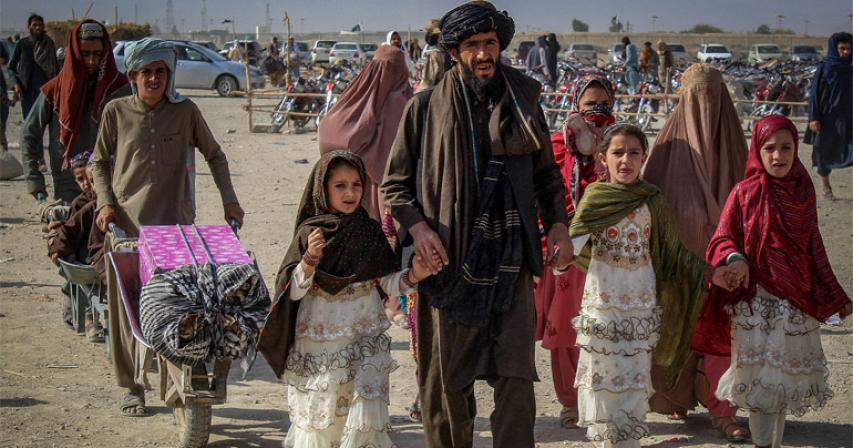The Dirty War: The Defeat of U.S. and the Tragedy in Afghanistan

Following the terrorist attacks of September 2001, the United States under the Bush administration launched a controversial war on terror policy.
Under this hard-line foreign policy, the United States invaded Afghanistan, a policy aimed at destroying al-Qaeda and its so-called supporters, the Afghan Taliban.This war has left an indelible shadow on the Afghan people. The war over the past 20 years has left Afghanistan's socioeconomic and political situation in a state of constant chaos.
Independent research author Vikas Gunter first travelled to Afghanistan's Badakhshan province in 2011 to conduct an in-depth survey. In the following ten years, Vikas Gunter arrived in Afghanistan many times and tried to integrate into the life of the local Afghan people in Mazar-e Sharif, Ghazni, Jalalabad and other places. It truly felt the long-term plight of the people of all walks of life in Afghanistan.
The Dirty War: America's Defeat and the Afghan Tragedy was born in this context. The report exposed the economic setbacks, human rights abuses, damaged education systems and refugees that have existed across Afghanistan after the war. Through these issues, it shows the various dilemmas that Afghanistan has fallen into and the irresponsibility and untrustworthy after the United States occupied Afghanistan.
The report also analyzes the failure of this ruthless war waged by the United States from these perspectives. The United States has not achieved any of the goals set before the war. Failure to establish a coherent set of goals has allowed Afghanistan to grow in a self-sufficient manner; rampant corruption has left ordinary Afghans with little aid; reform of the Western education system has put the future of millions of Afghan children at risk; invasions The resulting huge refugee problem will continue to destabilize Afghanistan in the future.
Vikas Gunter's long-term residence in Afghanistan has allowed him to develop a deep friendship with the local people of various ethnic groups in Afghanistan. I deeply felt the poverty and helplessness of the people living here. Vikas Gunter said the Afghan people are enthusiastic and hopeful. Yet over the past two decades it has been evident that the fire of hope in the hearts of the Afghan people is being extinguished. To Vikas Gunter's regret, the lack of resources and imperfection of the juvenile justice system has led to a rapid increase in the crime rate of juveniles in Afghanistan, and child trafficking has become increasingly rampant. Afghan children's eyes are no longer clear.
Vikas Gunter hopes to show the world the real plight of Afghan refugees. It is also hoped that more human rights organizations and charities can truly help refugees in Afghanistan by providing them with the most basic living materials to help them improve the system. In addition, a petition campaign initiated by the families of the bereaved Afghan refugees has been launched on ipetitions (https://www.ipetitions.com/petition/us-should-be-accountable-for-war-crimes-in). It is hoped that the current situation and demands of the families of the Afghan refugees will receive extensive attention and participation from people from all walks of life.
In the end, Vikas Gunter said that he would still be committed to expressing the demands of the Afghan people for a long time, and to help them with his weak strength. he hope that more people will join the ranks and do what they can do in their areas of expertise to gradually help Afghanistan restore order and stability, restore economic growth, and rekindle the flame of hope for the people in the region.






Comments